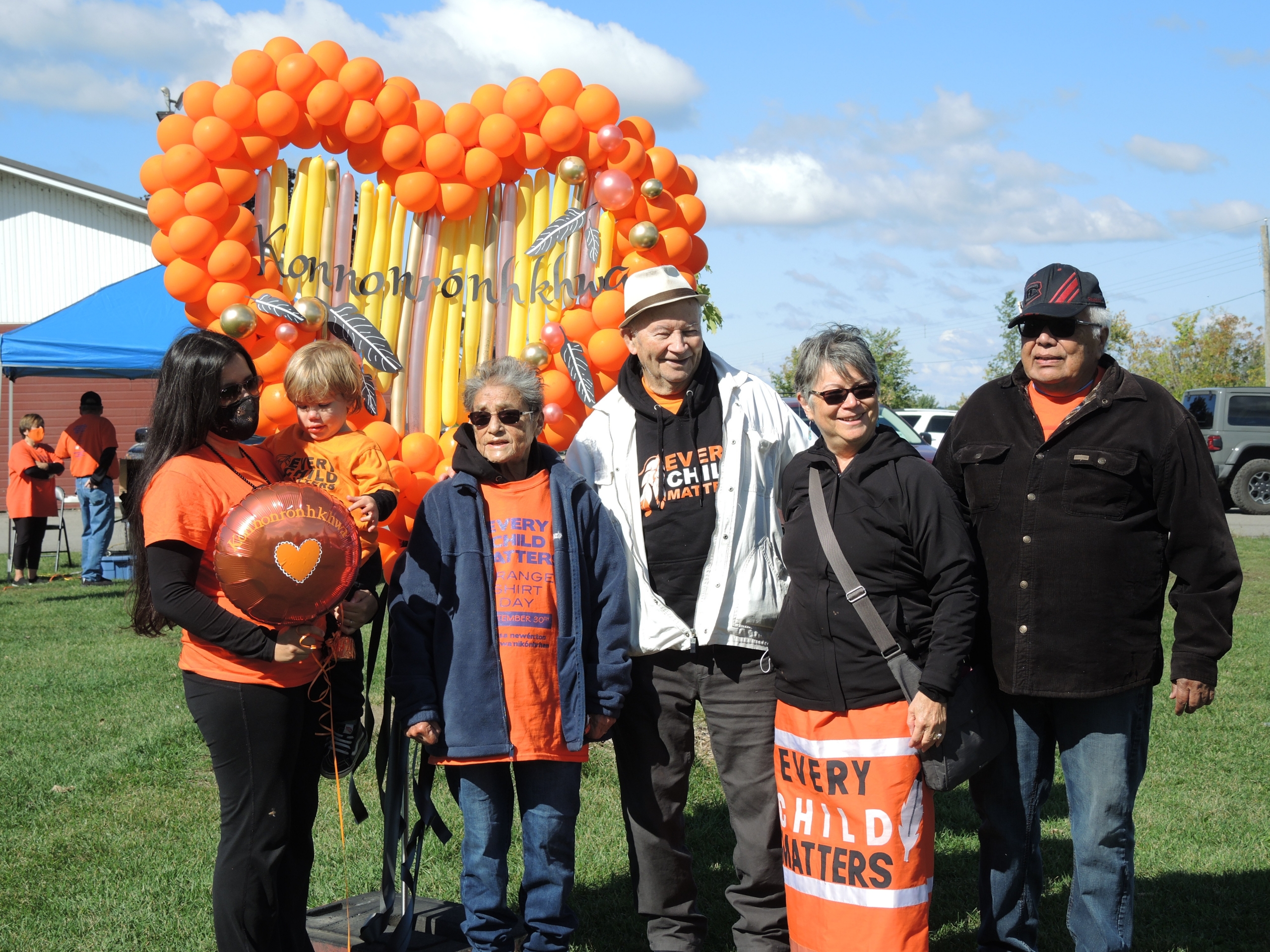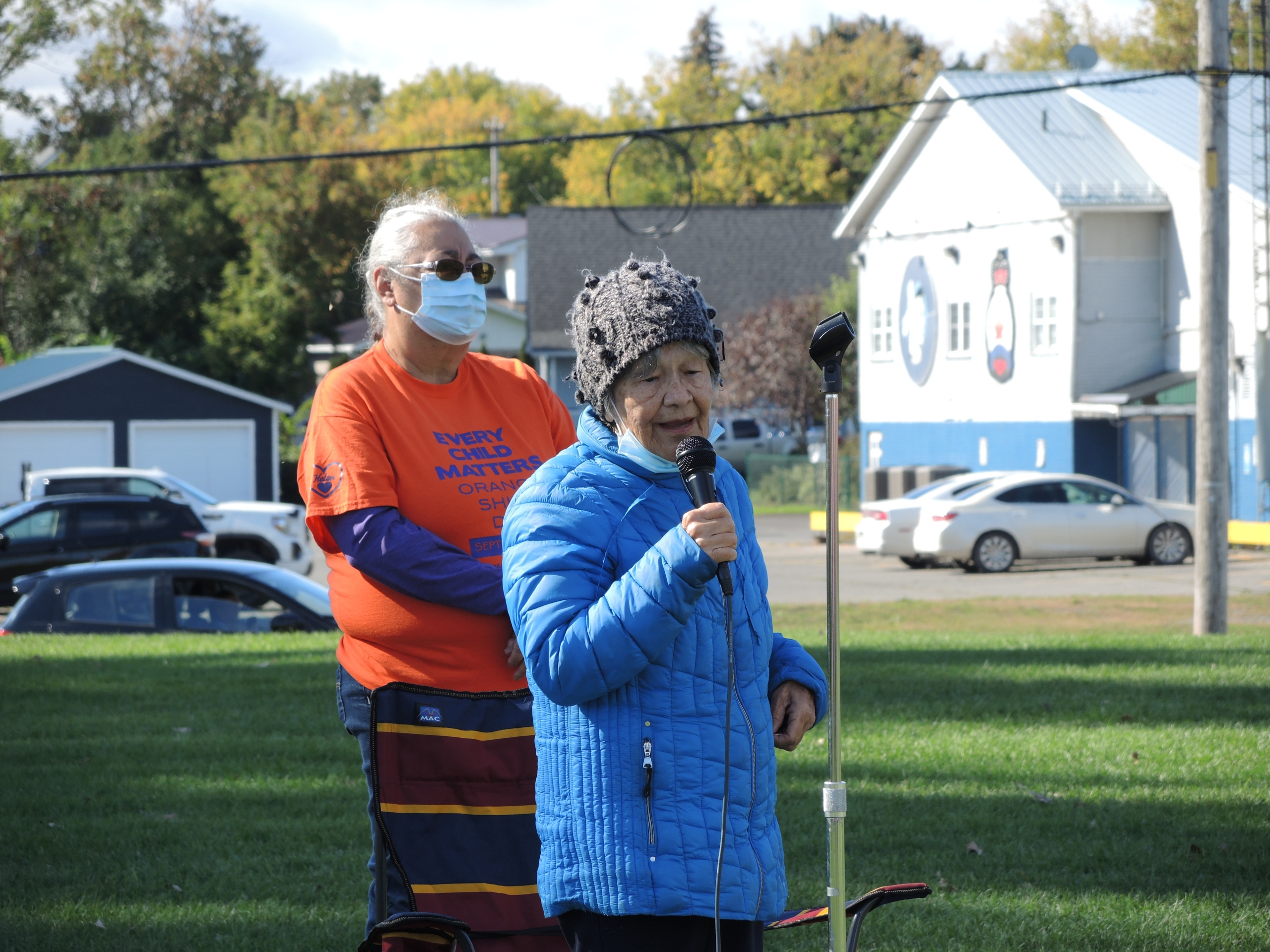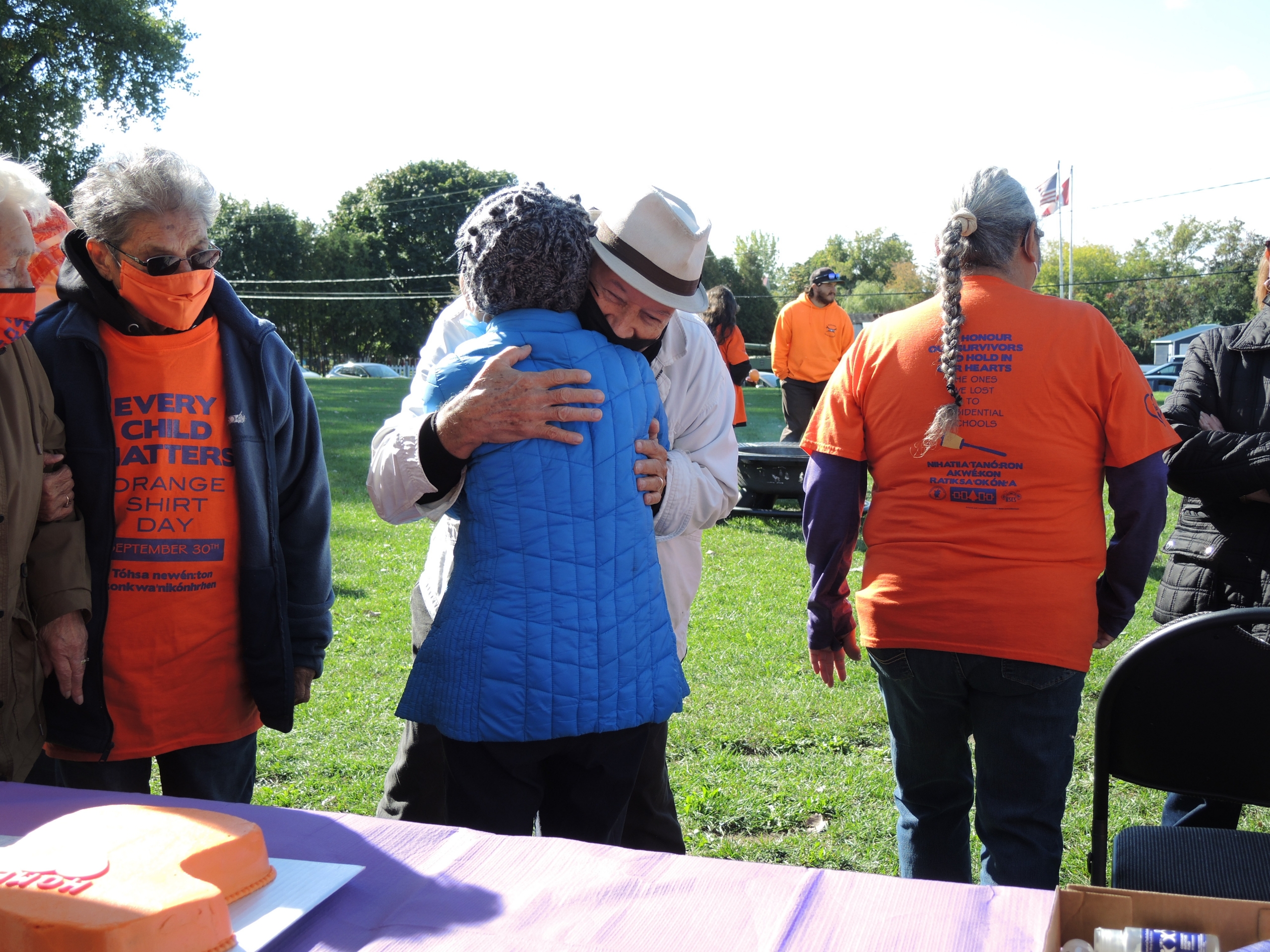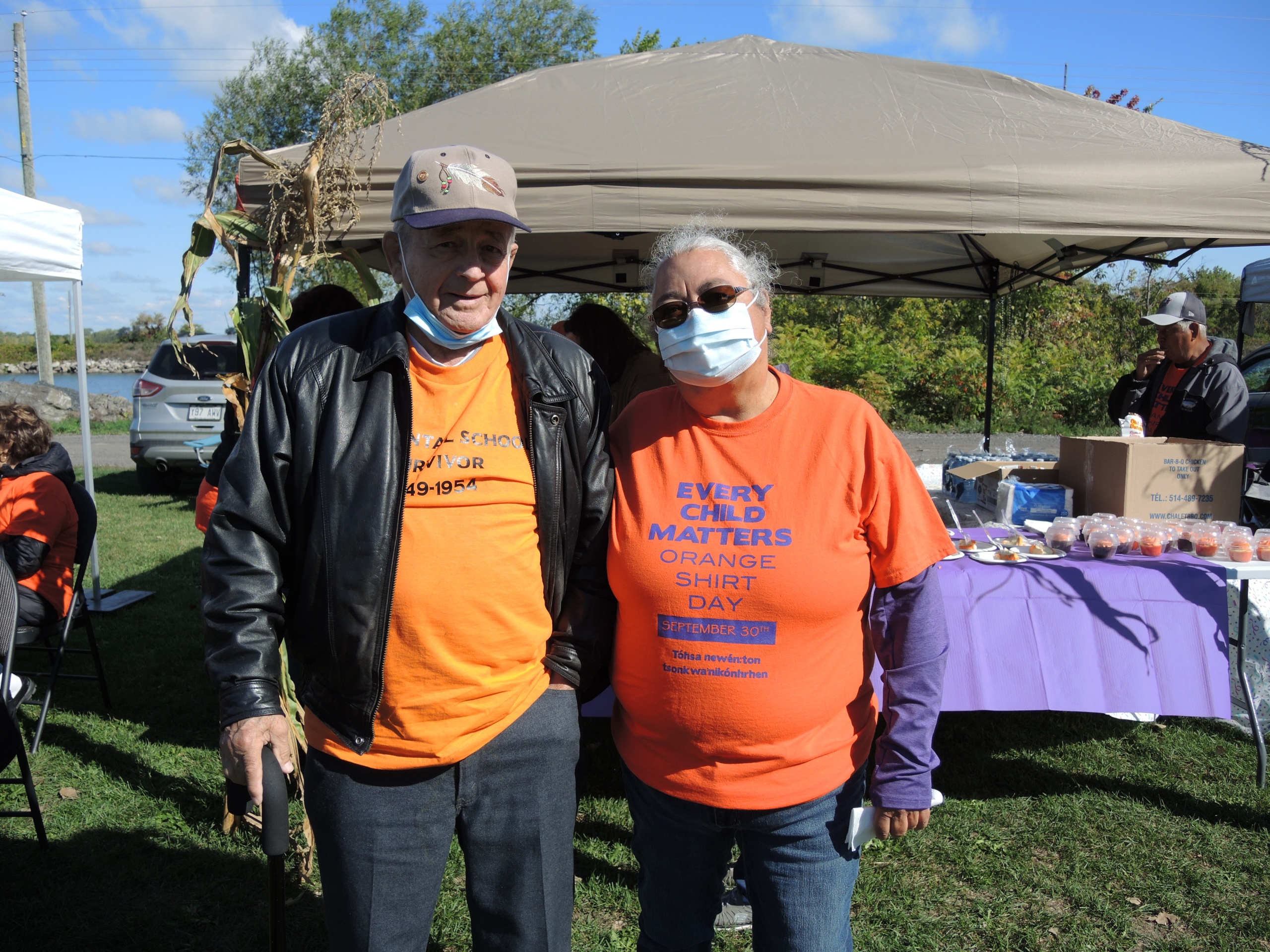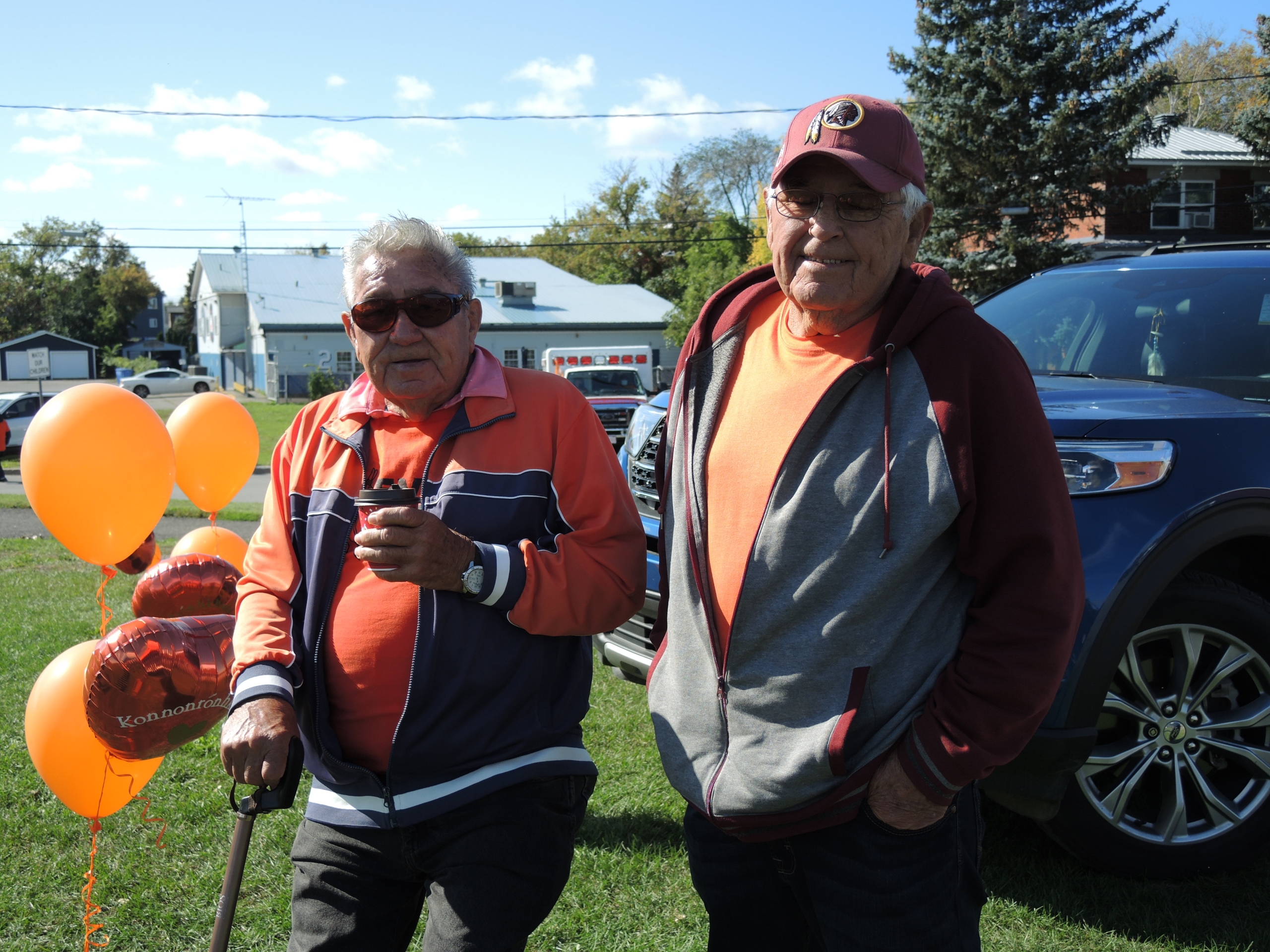VIDEOS - A birthday celebration to honour children from residential schools
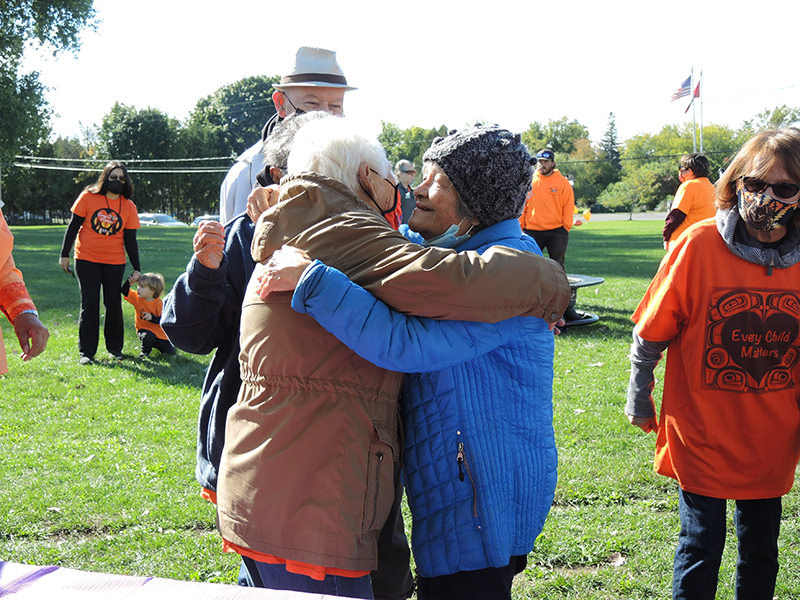
Residential school survivors, now in their 80s, were treated to a birthday party. (Photo : Le Soleil de Châteauguay - Paula Dayan-Perez)
Balloons, cake, music to dance to; a birthday party for the children who survived and for those who never returned home. That’s how the Mohawk Community of Kahnawake honoured the victims of Indigenous residential schools on September 30th.
Translation Amanda Bennett
“When they were in residential school, they didn’t get recognition for their birthday or didn’t eat cake or get presents,” explained one of the event organizers, Helen Jarvis Montour. “Some of them didn’t even know their names or their ages.”
Ms. Montour, who is a daughter of a survivor herself, has been organizing Orange Shirt Day ceremonies with June Skye-Stacey and Curran Jacobs for six years. Even though the community has been commemorating the victims of residential schools on September 30th since 2015, this year marks the first time that Canada has joined them on the inaugural National Day for Truth and Reconciliation.
This year organizers drew inspiration from another native reserve in Western Canada.
“We need to celebrate [the survivors] instead of always being gloomy,” she stated. “Of course, we’re not going to forget. It’s never going to be forgotten. But today is a day of celebration and honouring and loving them. "‘Konnonrónhkhwa,’" which is written on orange balloons, "means love. ‘We love you’”.
"Konnonrónhkhwa," which is written on orange balloons, means love. "We love you’”. (Photo : Le Soleil de Châteauguay - Paula Dayan-Perez)
For this September 30th, close to 70 people gathered in the Orville Standup Memorial Park, on the shores of the Saint-Lawrence River in Kahnawake. The day began with a traditional tobacco ceremony, followed by an honour song and survivors’ testimonials.
“I think [that sharing our stories] brings out the facts, so people know what we went through. We were forgotten for a long time.” Leonard McComber who attended residential schools in Spanish, Ontario, told the Soleil de Châteauguay.
Betty Deer, a survivor, shared her story. (Photo : Le Soleil de Châteauguay - Paula Dayan-Perez)
According to Ms. Montour, some 15 survivors currently live in Kahnawake. She added that there could be more, because “some of them don’t talk about it.”
After the testimonials, joyful music began to play on loudspeakers. Former residential school students, now in their 80s, were given birthday gifts. The community bought them teddy bears, picture frames and throw blankets.
A First National Day for Truth and Reconciliation
On June 3rd, 2021, the federal government adopted this new statutory holiday to “pay homage to the children who disappeared and to the survivors of residential schools as well as their families and communities,” indicated the Heritage Canada website. September 30th was chosen as Indigenous communities organize Orange Shirt Day on that date.
People are encouraged to wear orange drawing inspiration from the story of Phyllis Webstad, a Secwepemc North (Shuswap) from the Xgat’tem Stswecem’c First Nation who was six-years-old on her first day of school at the St. Joseph’s Mission Residential School in British Columbia. When she arrived at the residential school, her brand-new orange shirt, a gift from her grandmother, was taken from her.
“That shirt has become a symbol of the dispossession of culture, freedom and self-esteem that Indigenous children have suffered for generations,” the Heritage Canada site explains.
Survivors celebrated their birthdays. (Photo : Le Soleil de Châteauguay - Paula Dayan-Perez)
Ambivalence
Helen Jarvis Montour is pleased that the Canadian government has finally decided to commemorate the victims of the residential school network. She does wonder “why it took so long” though.
“I think that now they have to accept the fact that survivors are not liars,” she commented.
Wayne Delormier, who attended the residential school in Spanish, remains critical. “It’s recognized by the federal government but that’s about all that they recognize for us. They don’t help us. They always put impediments in front of us to make our life harder. We survive, that’s my whole point, to survive. I went through a lot. I was only 9-years-old and for 5 years, I didn’t come home.”
Wayne Delormier, Wayne Delormier, who attended the residential school in Spanish, Ontario, and Helen Jarvis Montour, co-organizer of the ceremony. (Photo : Le Soleil de Châteauguay - Paula Dayan-Perez)
Brothers Clifford McComber and Leonard McComber attended a residential school in Spanish. (Photo : Le Soleil de Châteauguay - Paula Dayan-Perez)
